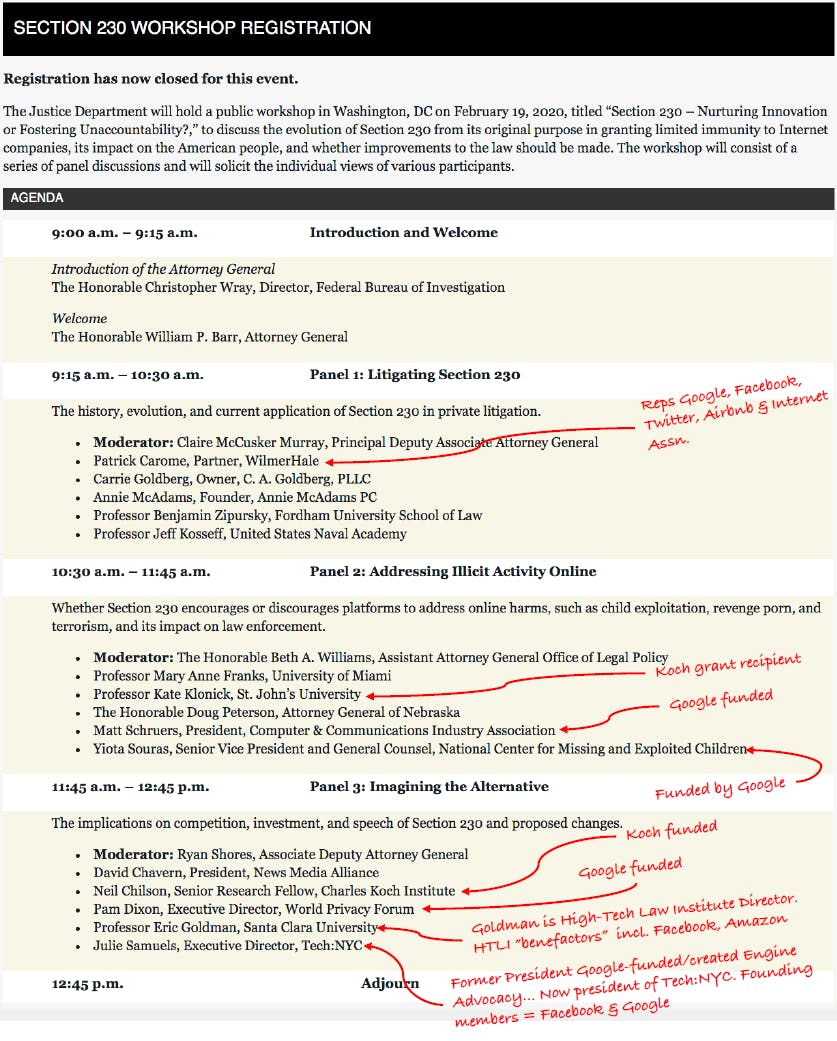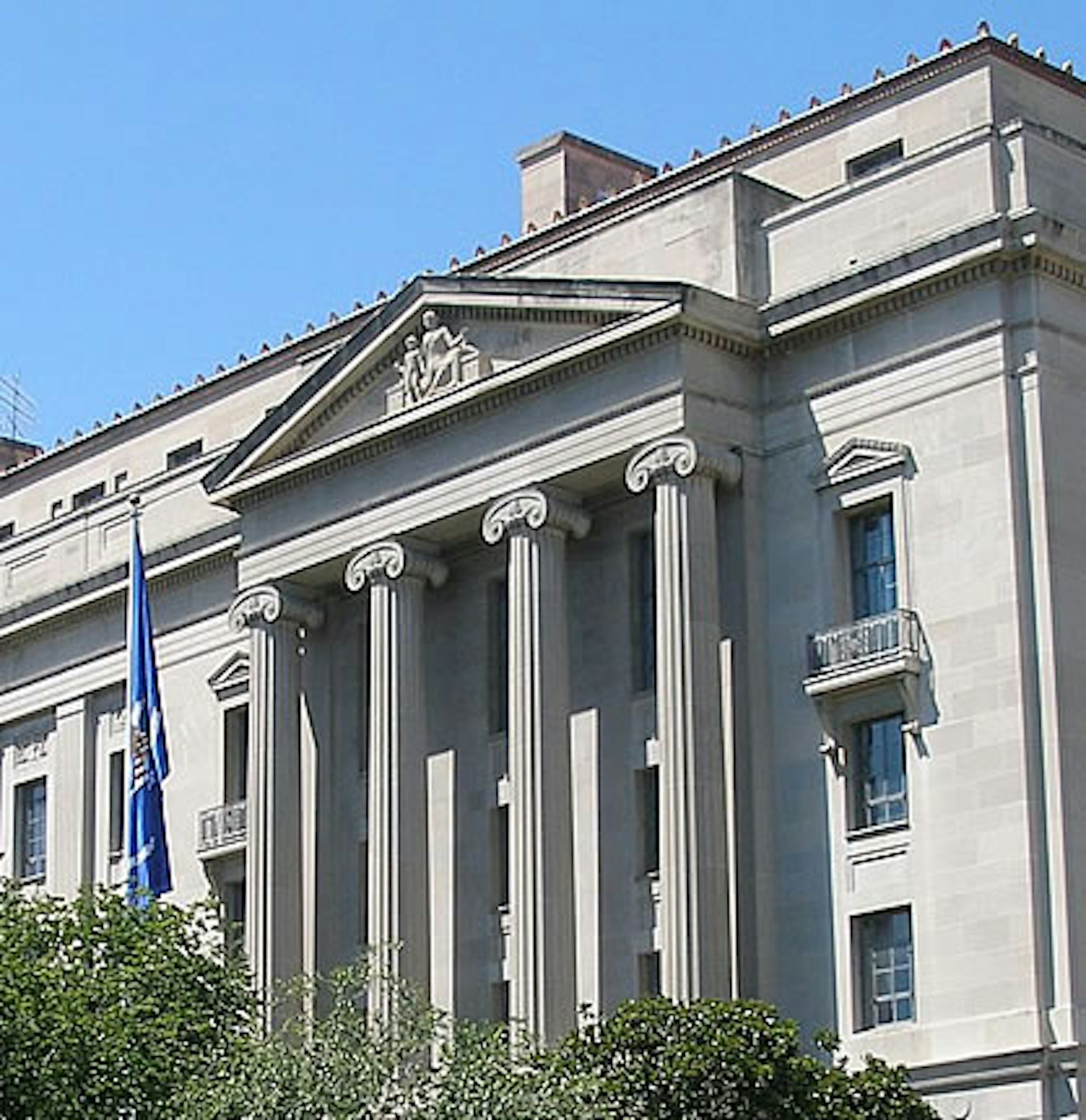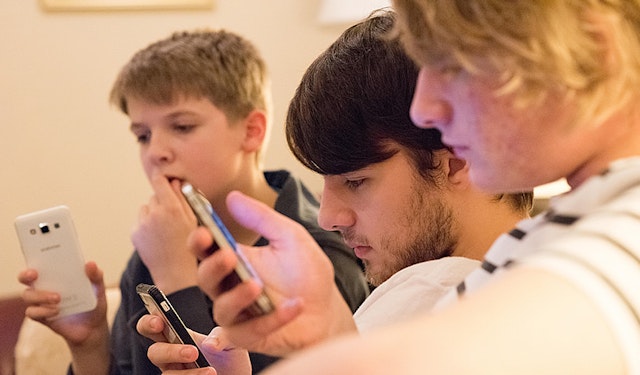Prior research by the Google Transparency Project has shown that many events held by policymakers to determine the future of internet regulation are dominated by speakers with financial ties to the industry. That’s been the case at Federal Trade Commission conferences on privacy regulation and antitrust, high-profile Congressional hearings and a host of other public policy events.
At one Congressional event on privacy, all but one panelist was funded by Google.
It is also proving true of the latest keenly awaited event, a workshop hosted by the U.S. Justice Department on Feb. 19 to discuss the future of a crucial legal immunity enjoyed by internet giants. The event is billed as a balanced discussion of whether the more than two-decade-old law, Section 230 of the Communications Decency Act, is nurturing innovation or allowing internet companies to turn a blind eye to rampant criminality on their platforms.
Of the 15 panelists listed on the public agenda, at least eight have financial ties to the tech industry or its supporters, including the Koch network. (GTP recently documented the growing alliance between Google and the conservative political network financed by the Koch brothers.)
If past events are any guide, many of the tech-funded panelists that predominate the Section 230 workshop are likely to echo the industry’s arguments.
Sources tell GTP that following the public workshop, the Justice Department is hosting a separate private panel that includes five additional panelists that have been funded by Big Tech. They include:
- Stewart Baker with the law firm of Steptoe & Johnson. Baker’s firm lobbies for Facebook and until 2018 lobbied for Big Tech’s trade group, the Internet Association.
- Elizabeth Banker, the deputy general counsel of the Internet Association whose members include Amazon, Facebook, Google and LinkedIn.
- Emma Llansó with the Center for Democracy & Technology whose funders include Amazon, Facebook, Google and the Charles Koch Foundation.
- Corynne McSherry with the Electronic Frontier Foundation. While the EFF doesn’t disclose its donors, Google disclosed that it had “contributed to the EFF for years” in a 2012 court filing.
- Eugene Volokh, a professor of law at UCLA Law School. Google commissioned a 2012 study by Volokh on First Amendment protections for search engine results.

Preview of the PDF file




